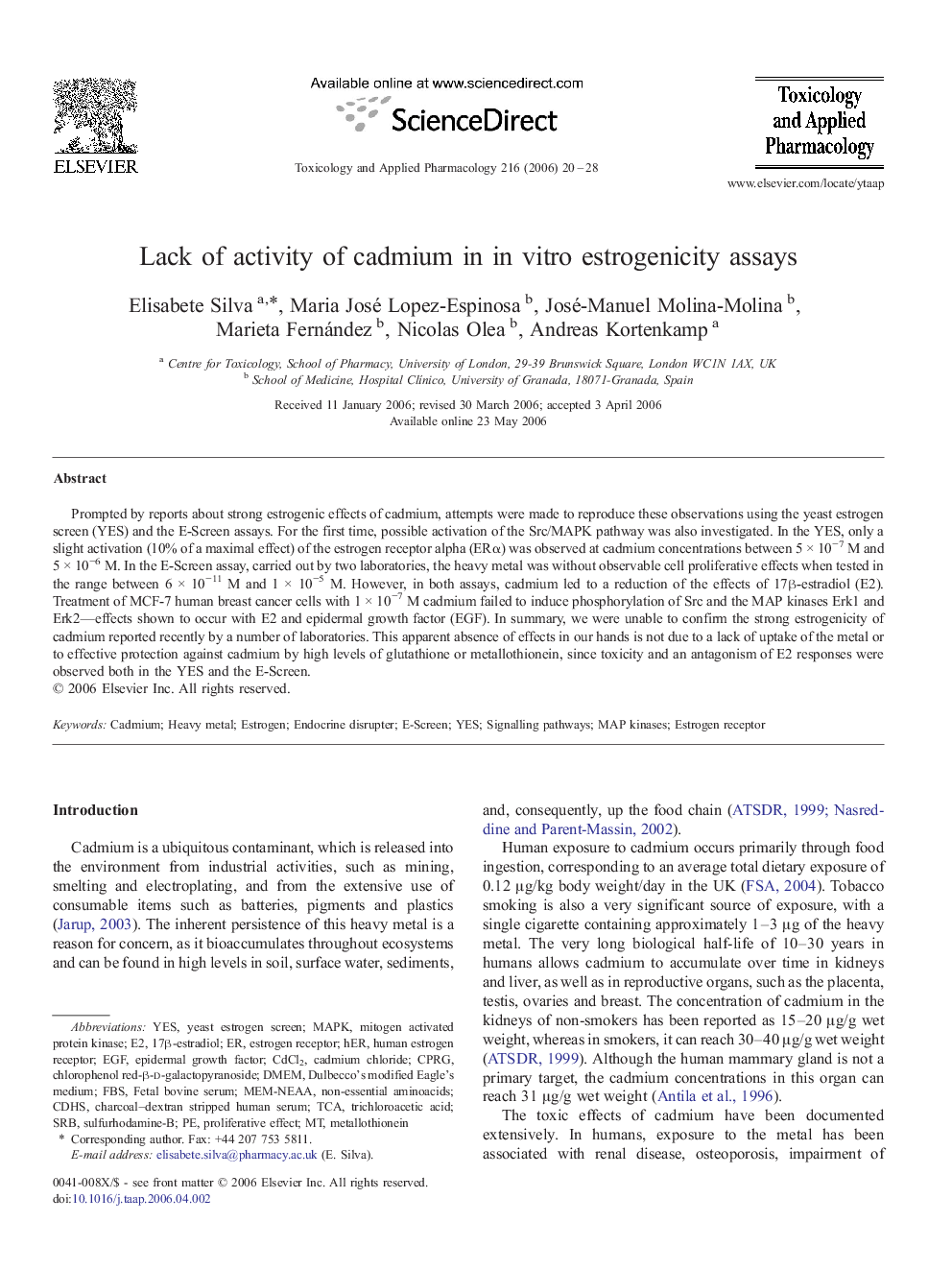| Article ID | Journal | Published Year | Pages | File Type |
|---|---|---|---|---|
| 2572004 | Toxicology and Applied Pharmacology | 2006 | 9 Pages |
Abstract
Prompted by reports about strong estrogenic effects of cadmium, attempts were made to reproduce these observations using the yeast estrogen screen (YES) and the E-Screen assays. For the first time, possible activation of the Src/MAPK pathway was also investigated. In the YES, only a slight activation (10% of a maximal effect) of the estrogen receptor alpha (ERα) was observed at cadmium concentrations between 5 Ã 10â7 M and 5 Ã 10â6 M. In the E-Screen assay, carried out by two laboratories, the heavy metal was without observable cell proliferative effects when tested in the range between 6 Ã 10â11 M and 1 Ã 10â5 M. However, in both assays, cadmium led to a reduction of the effects of 17β-estradiol (E2). Treatment of MCF-7 human breast cancer cells with 1 Ã 10â7 M cadmium failed to induce phosphorylation of Src and the MAP kinases Erk1 and Erk2-effects shown to occur with E2 and epidermal growth factor (EGF). In summary, we were unable to confirm the strong estrogenicity of cadmium reported recently by a number of laboratories. This apparent absence of effects in our hands is not due to a lack of uptake of the metal or to effective protection against cadmium by high levels of glutathione or metallothionein, since toxicity and an antagonism of E2 responses were observed both in the YES and the E-Screen.
Keywords
EGFchlorophenol red-β-d-galactopyranosideCPRGProliferative effectCdCl2TCASRBFBSDMEM17β-estradiolMAPKDulbecco's modified Eagle's mediumEndocrine disrupterEstrogentrichloroacetic acidHERYESfetal bovine serumYeast Estrogen ScreenE-screenepidermal growth factorMetallothioneinSignalling pathwaysHeavy metalmitogen activated protein kinaseCadmiumCadmium chlorideMAP kinasesEstrogen receptorHuman estrogen receptor
Related Topics
Life Sciences
Environmental Science
Health, Toxicology and Mutagenesis
Authors
Elisabete Silva, Maria José Lopez-Espinosa, José-Manuel Molina-Molina, Marieta Fernández, Nicolas Olea, Andreas Kortenkamp,
